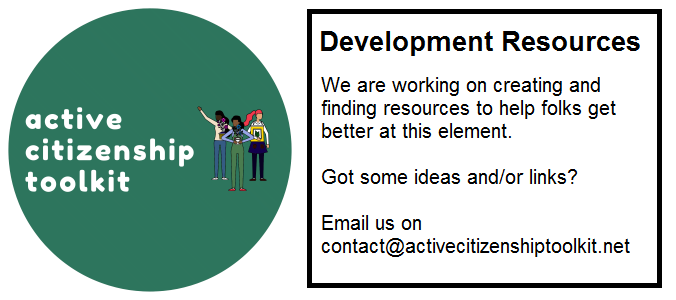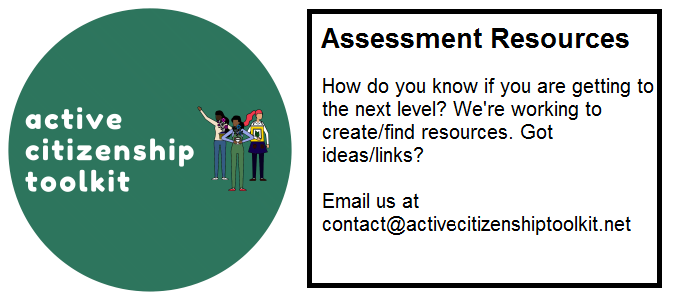Element Descriptor
Convening is distinct from formal coalition-building. Individuals and groups are (rightly) wary and weary when it comes to calls for umbrella groups and grand coalitions. Oftentimes more can be done through ad hoc convening work, but it still takes time and skill…
Level descriptors
| Novice | Practitioner | Expert | Ninja |
|---|---|---|---|
| Can convene a small number of groups who have a similar outlook or with whom there is a prior record of working together in response to a single short-term issue | Can convene a range of groups, some of whom may hold different views on certain issues, and sustain this over a period of time (either multiple issues or a long-term / slow-burn campaign). The convenor will be able to delegate. | Can convene a diverse range of groups, who take a variety of different positions and include campaigners from a range of backgrounds. The coalition will have some agreed set of principles or ground reviews and may come together in proactive reviews (not just in response to developments). The group will be able to pool resources, skills, knowledge and thicken their networks as a result. | Can convene a breath-taking array of groups, allowing even sworn enemies to work together in a constructive method. The coalition will have measurable and achievable goals, and will be well-placed to achieve many of them. |
Element Overview Essay
This is a draft. If something doesn’t make sense, or you see typos, or if you have further ideas, please email us on contact@activecitizenshiptoolkit.net
Before we begin to assess how to convene groups we need to explain what we mean by convening. So within Climate Emergency Manchester, we use it to describe a process which is not the building a formal coalition group. Our definition of convening would not include organising official umbrella organisations (that will then likely get everyone on a coach to go to London and wave a placard or Glasgow and freeze their ass off outside a pointless climate meeting or whatever).
Convening is about bringing together shifting often coalitions of individuals and groups around a specific action or a specific set of actions, where all have enough in common In terms of perspective, motivation, profile skills, that they will be, quote, stronger together, but unquote, but not in a permanent thing, which takes up loads of time, and has reputational risks, and all the rest of it.
There are a few reasons that this isn’t done well or done at all. Firstly, it’s just not on the radar. Because people think, “well, the only way to have collaboration between groups is to form a committee, an umbrella group, a steering group, and have endless meetings. And then of course, when you stop going to them, the Trotskyists, will then leap on their opportunity to stack a meeting force through a “democratic” vote and capture the decisionmaking apparatus of the group, in the hope of capturing the legitimacy of the organisation and the umbrella group and start using it to push their own particular tedious, tawdry, fundamentally wrong, perspective of “movement building”, which seems mostly to involve selling newspapers.”
So the other reason it’s not done well is it’s bloody hard work, and requires lots of skills. And in the end, your group, by definition, doesn’t end up in charge and has to share the credit with a lot of other groups. And most groups would rather get the “ego hit”, get the status hit, than get a job done. I’m sorry if I sound cynical/gloomy, but that’s how I see it.
The consequences of not convening groups are pretty straightforward. We stay where we are. We are weaker and atomized and we can’t bring effective pressure to bear at any given time. The status quo reigns and the incumbents don’t have to lift the finger.
Okay, so advice about convening. As with allyship, it’s going to require patience. It’s going to require sensitively worded emails and phone calls. It’s going to require building if they don’t already exist, relationships of trust. It is going to require some compromise.
But how much do you water down an open letter, for example, in order to get everyone on board and at what point does that compromise and watering down, start to be a reputational risk for you and your allies because you end up easily bought off and looking like just another bunch of not very committed and obsessed-with-access rather than influence group? So there are debates, there are dilemmas, you will get it wrong. Sometimes it will blow up in your face. It’s possible to convene, to do all the hard work of convening a group, and then have a carpetbagger organisation come along and say “well, we need to put this on a formal footing comrades, we need leadership”. And it’s that point you might decide to walk away and watch other people take over your hard work.
Development Resources

Assessment Resources

